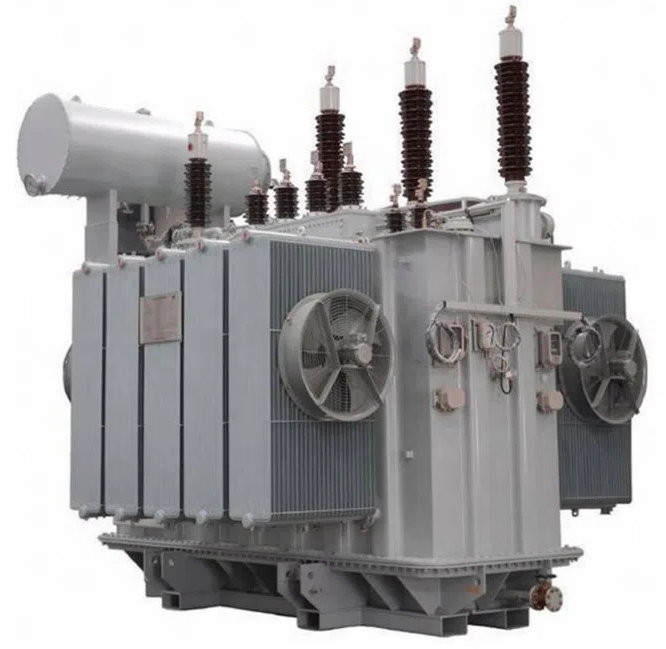1. Introduction
Power quality is a critical factor in modern electrical distribution systems, especially in environments with nonlinear loads. Harmonics generated by electronic devices, variable frequency drives (VFDs), and LED lighting can lead to overheating, inefficiency, and electrical system failures. To address these challenges, engineers use two primary transformer types: K-factor rated transformers and harmonic mitigating transformers (HMTs). This article explores their similarities, differences, applications, and relevant international standards.
2. Similarities Between K-Factor Rated Transformers and Harmonic Mitigating Transformers
Both transformer types are designed to accommodate nonlinear loads and their associated harmonics. Their shared characteristics include:
- Thermal Management: Built to handle additional heat generated by harmonic currents.
- Core and Winding Optimization: Designed to minimize eddy current and stray losses.
- Improved System Reliability: Reduces the risk of overheating, ensuring longevity.
3. Differences Between K-Factor Rated Transformers and Harmonic Mitigating Transformers
Despite their similarities, these transformers serve different purposes:
| Feature | K-Factor Rated Transformer | Harmonic Mitigating Transformer (HMT) |
|---|---|---|
| Primary Function | Withstands additional heating caused by harmonics | Actively reduces harmonic currents and voltages |
| Design Focus | Uses enhanced winding techniques and core materials to manage extra heat | Uses phase shifting and specialized winding configurations to cancel harmonics |
| K-Factor Rating | Rated from K-1 to K-20+ | No K-factor rating, designed for harmonic reduction |
| Mitigation Method | Does not eliminate harmonics but withstands their effects | Reduces triplen harmonics (3rd, 9th, 15th, etc.) |
| Neutral Conductor Size | Often oversized to handle harmonic currents | Reduces neutral current via harmonic cancellation |
4. Application Recommendations
Transformer selection depends on load type, harmonic content, and system efficiency requirements:
| Application | Recommended Transformer | K-Factor Rating (if applicable) | Justification |
|---|---|---|---|
| Data Centers & IT Loads | Harmonic Mitigating Transformer (HMT) | N/A | Reduces triplen harmonics and neutral current |
| VFDs & Motor Loads | K-Factor Transformer | K-13 to K-20 | Handles high harmonic currents but does not mitigate them |
| Office Buildings | Harmonic Mitigating Transformer (HMT) | N/A | Cancels 3rd, 5th, and 9th harmonics to improve power quality |
| Hospitals | Harmonic Mitigating Transformer (HMT) | N/A | Reduces electrical noise for sensitive medical devices |
| Industrial Plants (Arc Furnaces, Rectifiers) | K-Factor Transformer | K-20+ | Designed to withstand extreme harmonic currents |
| Retail Stores, Malls | K-Factor Transformer | K-4 to K-9 | Manages moderate harmonics from LED lighting & HVAC |
5. International Standards
Compliance with international standards ensures transformer reliability and efficiency. Key standards include:
IEEE Standards:
-
- IEEE 519-2022: Harmonic control in power systems
- IEEE C57.110-2018: Transformer capability under nonlinear loads
- IEEE C57.12.00-2021: General requirements for power transformers
IEC Standards:
-
- IEC 60076-1: General requirements for power transformers
- IEC 60076-3: Insulation levels and dielectric tests
- IEC 60076-19: Transformers handling harmonic loads
UL Standards:
-
- UL 1561: Dry-type transformers
- UL 1562: Transformers for nonlinear loads
NEMA Standards:
-
- NEMA TP-1: Energy-efficient transformers
- NEMA ST 20: Dry-type transformers for non-sinusoidal loads
6. Manufacturer Recommendations
Several manufacturers provide industry-compliant K-factor and harmonic mitigating transformers:
| Manufacturer | Product Series | Transformer Type |
|---|---|---|
| Schneider Electric | Square D | K-Factor & HMT |
| Eaton | Harmonic Mitigating & K-Factor Transformers | K-Rated & HMT |
| Siemens | GE Ventex Series | K-Rated & HMT |
| ABB | ABB Dry & Liquid-filled Transformers | K-Factor Rated |
| Hammond Power Solutions (HPS) | HPS Centurion R & Titan Series | K-Factor & HMT |
7. Conclusion
The choice between K-factor rated transformers and harmonic mitigating transformers depends on system requirements:
- Use K-Factor transformers where harmonic mitigation is handled elsewhere, and the primary concern is thermal stress due to harmonics.
- Use Harmonic Mitigating Transformers when harmonic reduction at the transformer level is required to improve power quality and reduce neutral currents.
Selecting the appropriate transformer based on load characteristics, harmonic content, and compliance with international standards ensures reliable, efficient, and safe electrical distribution systems.
